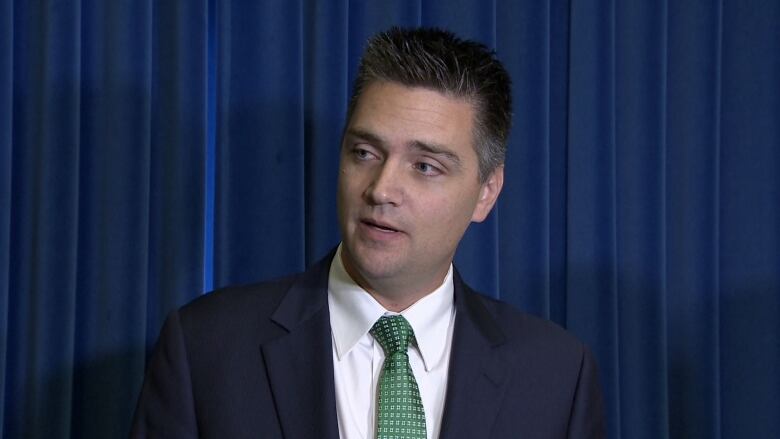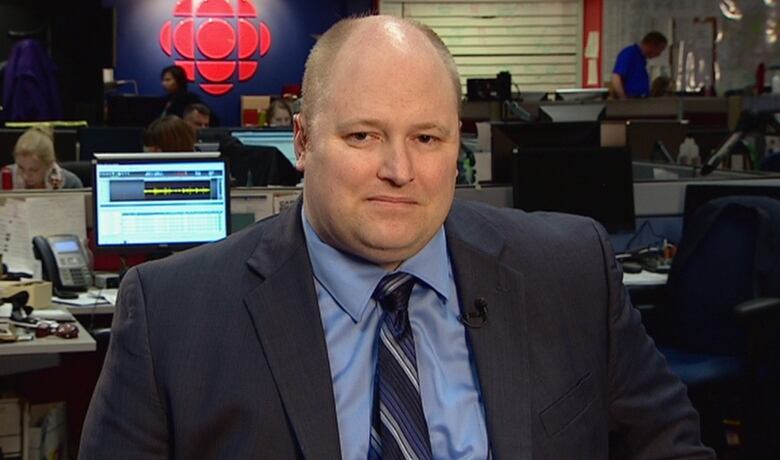B.C. Transportation Minister Todd Stone admits to 'triple deleting' his emails
Stone says he and his staff 'adhere 100%' to province's freedom of information Act

B.C. Transportation Minister Todd Stone admitted Thursday that he has "triple deleted" his emails, despite a report published on the same day that condemnedthe practice.
"I have triple deleted my emails from time to time," said Stone.
"Some emails are deleted, some emails are kept. That is,I think, how all British Columbians manage their email."
- Highway of Tears email deletion referred to RCMP
- Culture of 'delete, delete, delete' in B.C. government
- Access Denied: Elizabeth Denham's full report
Stone didn't say whether the emailshe admitteddeleting were personal or government-related. He did say that he and his staff "adhere100 per cent" to the province'sFreedom of Information and Protection of Privacy Act.
Earlier Thursday, B.C. Privacy Commissioner Elizabeth Denham issued a reportdecryingthe practice of "triple deleting" emails, which permanently deletes them from all government servers.
It also said Transportation Ministry stafferGeorge Gretes lied under oath when he denied thatheintentionally deletedHighway of Tears emails and records.
The Highway of Tears refers to a remote stretch of Highway 16 between Prince Rupert and Prince George, where 19 or more mostly aboriginal women disappeared between 1969 and 2011.
According to Denham's report, "triple deleting" means first moving an email to the computer system's "deleted"folder, expunging the email from the folder itself, and then manually overriding a backup that allows the system to recover deleted items for up to 14 days.
Stone saidhe respects the commissioner's interpretation of the information act, and again repeated that hehasn't broken any rules. He said the province will closely examineher recommendations and will consider how best to act upon them.
Hundreds ofemailsdeleted daily
Tim Duncan, the whistleblower who prompted the investigation, said he and his colleagues routinely did the same, thereby expungingtheir emails from government servers.
"We were triple-deleting emailson a daily or a [twice] daily basis," said Duncan.

"It's quite common to delete emails massivelynot any one specific email, but hundreds of emails every night before you go home."
Duncan said there's no way of knowing what information was included in all those lost records.
"I suspect over the last couple of years there's likely been very sensitive information deleted," he said.
The former Transportation Ministrystaff membersaid it's a common practice that "everyone knows is happening," but the risk of speaking out against the practiceis too great for most employees.
"It's ultimately a suicide mission in the sense you'd be terminated the very next day," he said. "It's almost impossible to come forward while you're currently in government."
Duncan says he was accused of being a disgruntled former employee after he disclosed the information to the privacy commission.
"That's been the line the Liberal government and their communicationsstaff have been using against me for sixmonths," he said.
"The report was very clear in saying that was not the caseItold the truth.Iwas honest."
Duncan said he hopes the province implements all of the report's recommendations, and if it doesn't, that British Columbians consider that when they head to the polls for the next provincial election in May2017.
With files from Richard Zussman












_(720p).jpg)


 OFFICIAL HD MUSIC VIDEO.jpg)
.jpg)



























































































